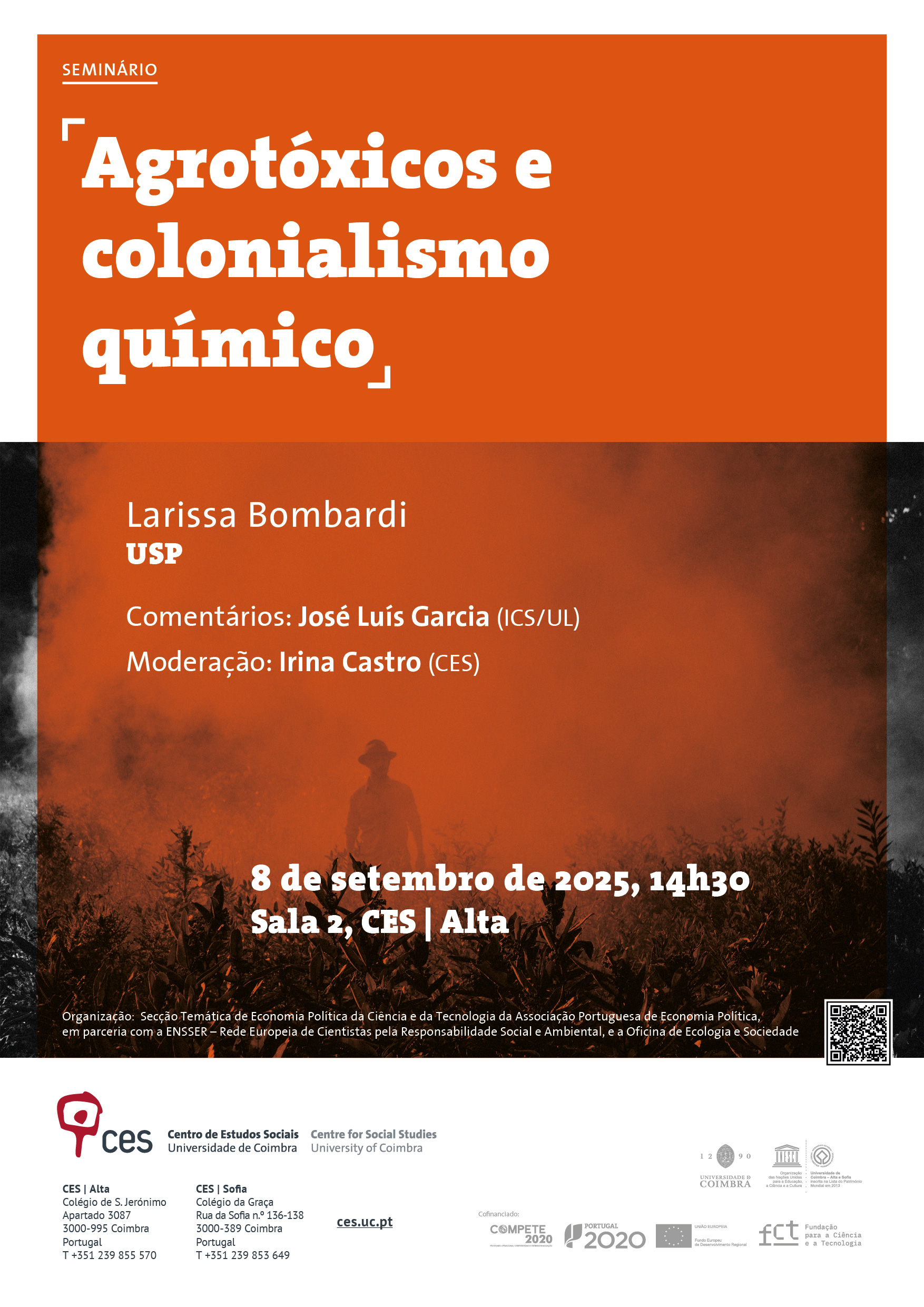Seminar
Pesticides and Chemical Colonialism
Larissa Bombardi (USP)
September 8, 2025, 14h30
Room 2, CES | Alta
Chemical colonialism is a concept formulated by Brazilian geographer Larissa Bombardi to denounce how countries in the Global North produce, export, and impose the use of hazardous chemicals, such as pesticides, agrochemicals, and fertilisers, on countries in the Global South.
A concrete example is paraquat, a highly dangerous chemical herbicide that, until its ban in the European Union, was widely used in agriculture to kill weeds. Considered one of the most lethal pesticides due to its toxicity, exposure to this compound causes severe damage to the lungs, kidneys, liver and nervous system.
Produced by the multinational company Syngenta, paraquat was banned in Europe in 2007 and is prohibited in more than 50 countries. Nevertheless, it remains widely used in countries such as Brazil and Paraguay, as well as in several regions of Asia and Latin America. Its ban in Europe does not, therefore, imply a ban on its production and export, a situation that is documented and denounced by Larissa Bombardi in her work, and which has exposed her to intimidation and threats to her physical integrity and her life.
In this seminar, the Thematic Section on the Political Economy of Science and Technology of the Portuguese Association of Political Economy, in partnership with ENSSER - European Network of Scientists for Social and Environmental Responsibility - and the Ecology and Society Lab, invites Larissa Bombardi to present her work and history of dissent.
The commentary will be provided by José Luís Garcia, Principal Investigator at the Institute of Social Sciences of the University of Lisbon, whose life's work advocates an open, interdisciplinary and committed approach to science.
Moderator: Irina Castro (CES)
Bio note
Larissa Bombardi is a geographer and associate professor at the Department of Geography at USP (Brazil), currently a visiting researcher at CESSMA (Centre d'études en sciences sociales sur les mondes africains, américains et asiatiques) as part of the PAUSE Programme at the University of Paris, France. Since 2021, after numerous attempts to discredit her research, death threats, and an assault on her home in Brazil, Larissa has been living in exile in Europe, where she continues her work as a scientist and her denunciation of chemical colonialism.


